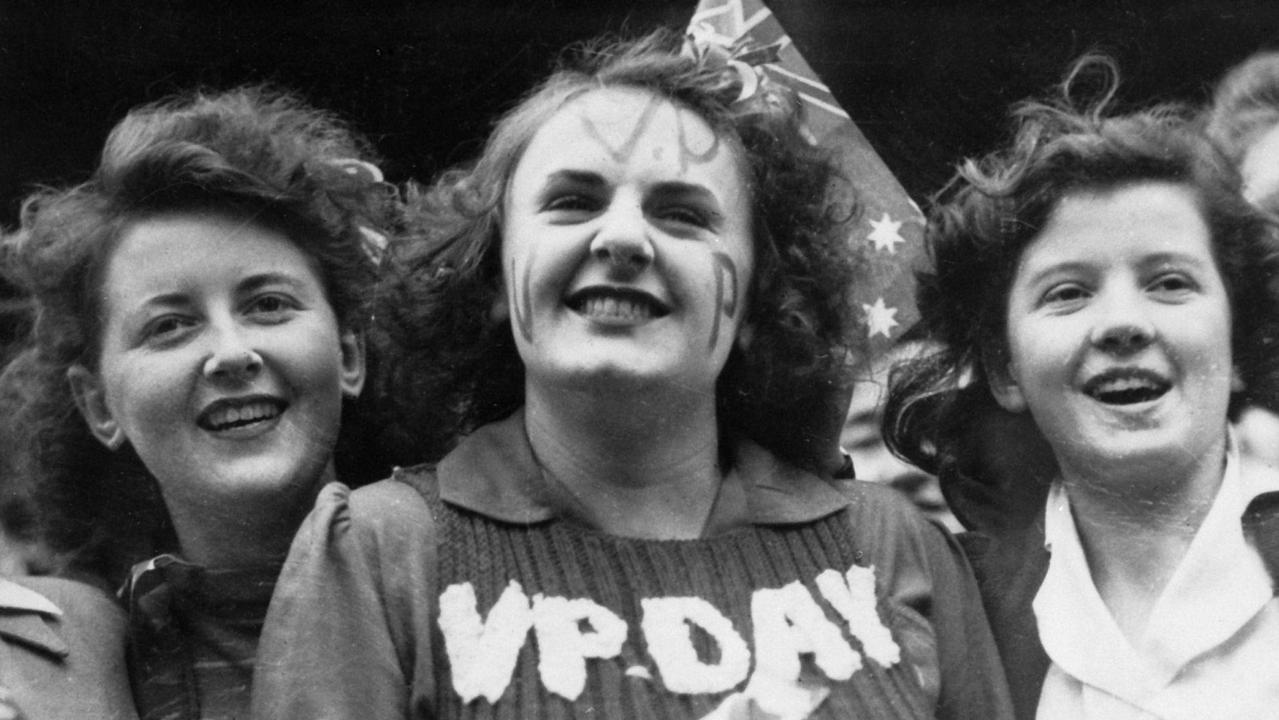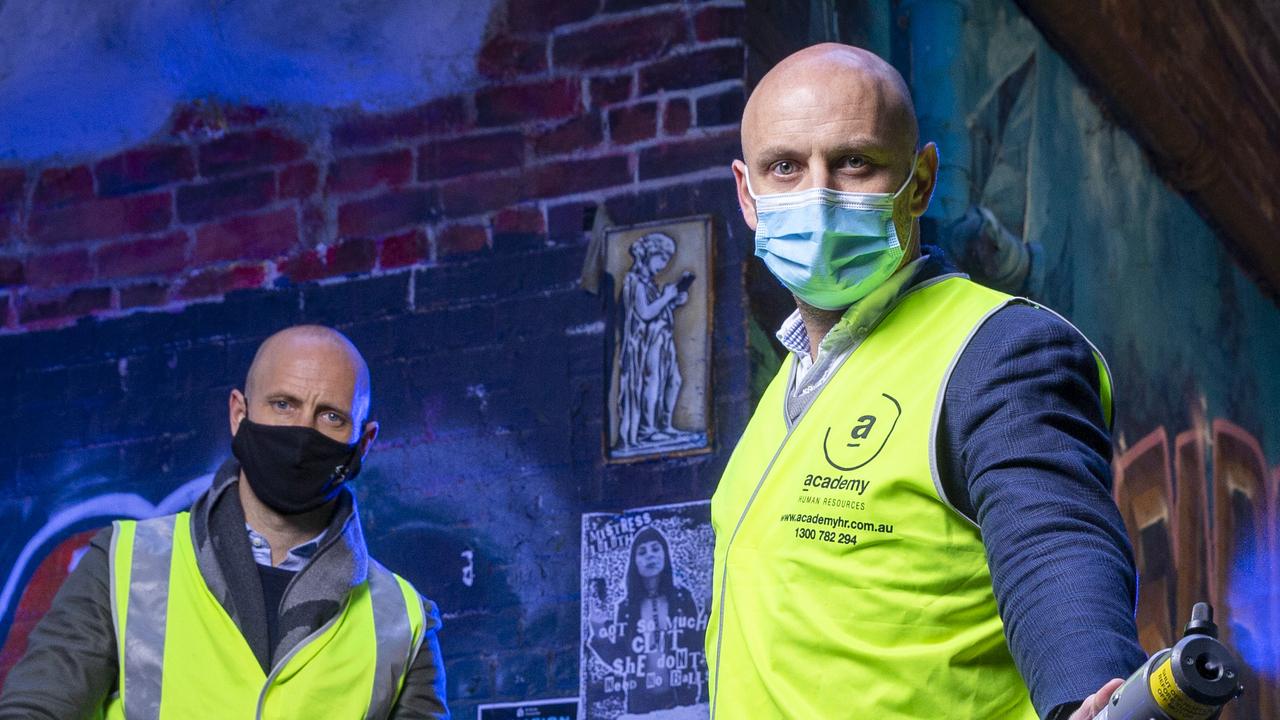Liver transplant bonds families, and now supports others stepping into organ donation world
This is a mother’s group like no other, one you hope you never need to join. But when you have nursed your child through the twilight zone of life and death, it’s one that will help hold you together.
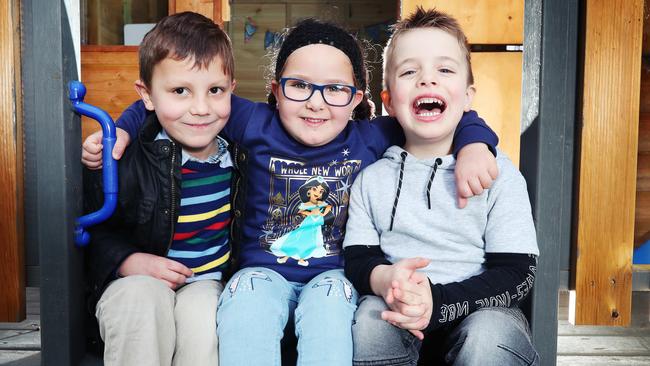
Lifestyle
Don't miss out on the headlines from Lifestyle. Followed categories will be added to My News.
In this mother’s group there are no raised eyebrows among these women about having hand sanitiser at every entrance to their cars and homes.
These chicks carry face masks in their handbag.
As the mothers of children who have all needed a liver transplant, Vanja Joannidis, Melissa Doherty and Mirna Kid all know the arrival of this lifesaving organ doesn’t mean your child has crossed the finish line to good health.
And they understand the burden of carrying the confusing mixed feelings of guilt and gratefulness, that is the reality when hoping for life means waiting for death.
What started as a social-media group for a handful of families who met at the Royal Children’s Hospital, is now supporting about 100 parents.
Some are awaiting transplant and others are on the other side. But all on the Liver Mum’s Fight Club Facebook group are thirsty for information, support and understanding that they struggle to get in the outside world.
“It’s really hard for your friends and family to truly grasp what’s happening,” Joannidis says.
“You’re told; ‘Oh my god, I admire you, I don’t know how you do it’. No matter what you say, it’s hard to share with them truly what you’re going through no matter how close they are to you.
“You can’t share with them some of the things that run through your mind that are so negative. I remember there were times in my mind I was preparing what my son’s funeral would look like.
“A normal response would be; ‘Come on, you’ve got to be positive. He’ll be fine’. But they don’t know that. Sometimes you just need someone to sit and listen and hold your hand.”
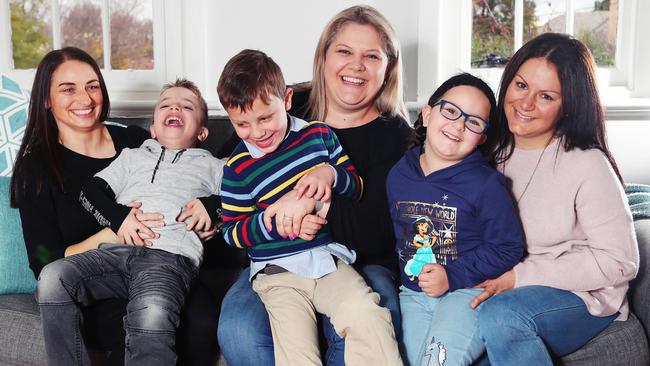
By the time Joannidis met Kid and Doherty, their children were in recovery after transplant.
Joannidis’s son Charlie was seven weeks old when he was diagnosed with biliary atresia, a rare disease that blocks the bile ducts and causes a build-up of toxic bile in the liver.
“To say the diagnosis was a shock was an understatement,” Joannidis says.
“Overnight you go from having a child with colic and you’re just a mother doctors think is imagining things, to being told that at some point in the next year or two he will require a liver transplant.”
Doctors hoped to delay the need for transplant until Charlie had turned one. This milestone not only ensures children are at an optimal weight and size for surgery, but they can also receive the scheduled measles, mumps and rubella vaccine. As it contains live viruses, that vaccination cannot ever be given after an organ transplant.
For almost 17 months Charlie was kept stable with a strict regimen of hospital visits every three days, tube feeding and infusions. But he deteriorated fast and landed on top of the national waiting list for a new organ. Ultimately a donor liver could not be found in time, and Joannidis was called on to donate a lobe of her liver to her critically ill son. She became the second person in Victoria to do so.
“Transplant is like a wall you feel you will never reach and get over,” she says.
“Time goes extremely slow. You find yourself on all sorts of roller coasters of feelings and emotions, from worry and lack of control about what’s happening to trying to understand what the diagnosis means.
“Then after the transplant there are a whole lot of health issues that you just don’t expect.”
Doherty and Kid met in the kitchen at the end of the intensive care ward at the RCH. Kid overheard Doherty tell her daughter Zara they were about to see her brother Hunter, then aged seven months, because he now had his new liver.
Kid’s 21-month-old daughter Laila was in the operating theatre at that very moment receiving hew new gift of life.
“We just hit it off from there,” Kid says.
The Kid family had already endured two false alarms waiting for the donor liver. The most recent just two days before, while Laila was undergoing chemotherapy.
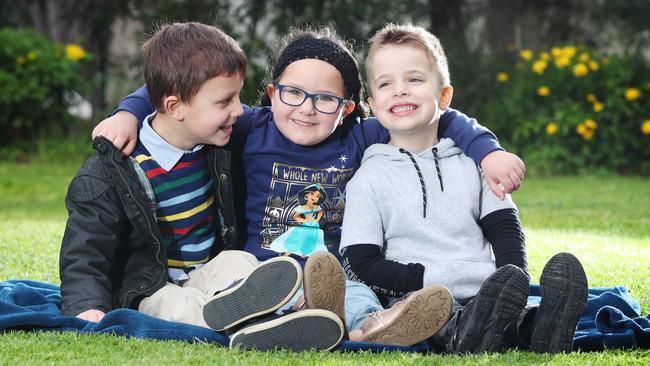
Despite Laila being at the top of the waiting list across Australia and New Zealand, on closer inspection surgeons determined that liver was too small for Laila and it went to another child — unbeknown to them, it was Hunter.
While their journey to the transplant was different, having the surgery two days apart gave the women a unique ally and source of support. This was especially important given they were staying by their child’s hospital bed for weeks on end while their husbands cared for their other children at home.
Once the children were asleep, they would text each other that the coast was clear and they would meet at the end of ward each night.
“Sometimes we would just sit in that room and cry, both of us,” Kid says.
Laila was 18-months-old when Kid noticed her youngest child’s abdomen was bloated and she felt a lump while changing her nappy. A GP sent her for an ultrasound and they were sent straight to the Monash Children’s Hospital Cancer Centre from there.
The scan showed she had a hepatoblastoma, a rare tumour that starts in the liver and is usually detected in kids under the age of three. Surgeons hoped they would only need to take a portion of the liver, but scans revealed the tumour was bigger than first estimated and the whole organ would have to go.
Not only did Kid and husband Adam endure the heartache of seeing their baby daughter lose her hair, stop eating and stop gaining weight through chemotherapy, they were also carrying the anxiety that if the cancer spread before a donor match was found, that would render Laila ineligible for a transplant.
For a month, this jaundice child was at the top of the national waiting list as her body started slowly shutting down. But her day did come.
While the transplant put Laila, now aged six, into remission, like many transplant recipients there are ongoing health problems.
“You don’t know how it’s going to take. We had a few episodes of rejection. You’re on lifelong medication. She’s still having issues with her bile ducts four years later,” Kid says.
“To go through it with someone who is in the same boat as you — your family don’t understand, your friends don’t understand. We’ve all gone through the same thing and no one else really understands what we’ve been through.
“I don’t think I could have got through this without Mel, to be honest. It’s 100 per cent worthwhile reaching out to other people.”
For Doherty, whose son Hunter was diagnosed with biliary atresia at four months, it has been the support from her fellow liver mums in the years following transplant that have been the greatest help.
“It took a long time for him to recover, and I think that’s what brought the three of us mums together.
“You talk about the other side and that everything will be so much better on the other side,” Doherty says.
“But you get to the other side and think there is a whole lot of things still to deal with. It’s not over.
“It’s been almost four years since transplant and this year is the first time he has had bloods in normal range. You can’t quite relax. It’s wonderful to be post-transplant. But people ask me when will he be better? When will he stop taking his medications?
“He won’t really ever be better. He’ll be on immune suppressants his whole life. The risk of him becoming unwell will be there his whole life. People are really shocked by that.”
Now with all three children running and jumping like others their age, and two of them in school, the mothers now hope their bond can be a shining light to other families just taking their first steps into the world of organ transplantation.
“You’ve got this transplant wall in front of you and you’re waiting for his call that will change your life,” Joannidis says.
“I want to help people visualise their life beyond the immediate situation. You have to have some sort of a plan and strategy. The lack of control you have prior to transplant, you have to make sure it doesn’t follow you after, and you can really go on to live the best life.”
More than 1400 Australian are waiting for a donor organ right now. Last year 318 Australians received new livers.
To register as an organ donor go to donatelife.gov.au

